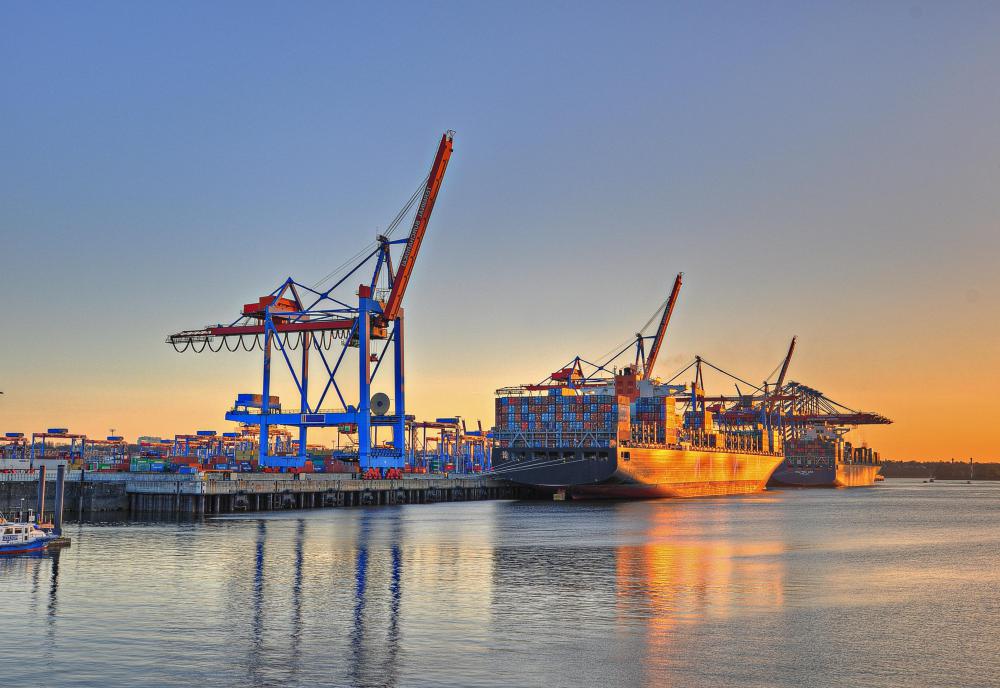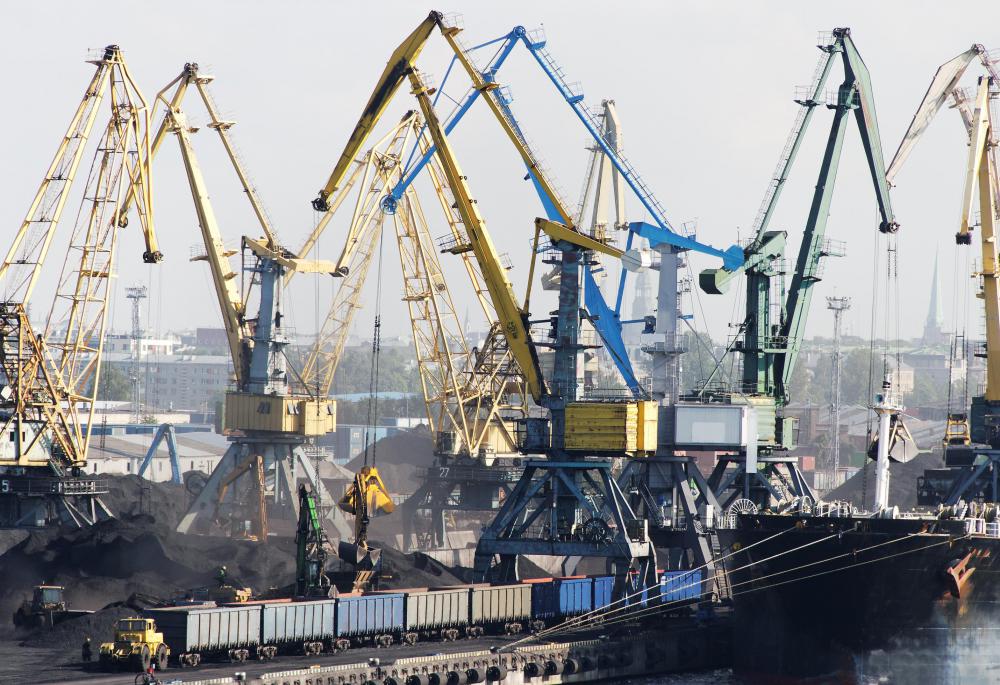At WiseGEEK, we're committed to delivering accurate, trustworthy information. Our expert-authored content is rigorously fact-checked and sourced from credible authorities. Discover how we uphold the highest standards in providing you with reliable knowledge.
What Are the Barriers to International Trade?
Some barriers to international trade include differences in language, culture, laws and regulations. Trading companies also may encounter misunderstandings over the terms of contracts, leading to problems with payment for goods, freight or insurance. Laws on land, employment, intellectual property and public health are different from country to country and may cause problems for international enterprises. Movements in currency exchange rates and rising inflation or interest rates in the foreign country are a trap for unwary traders. Tariffs and quotas on imported goods, combined with subsidies for domestic industries, load the dice against foreign businesses in many countries.
Transportation of goods once was one of the barriers to international trade, but the development of modern cargo ships, containerization and sophisticated container ports — including inland dry ports — led these logistical problems to decrease. Misunderstandings in international contracts have been reduced by the development of standardized contract terms, while governments often give support such as guarantees to companies looking for export financing. Companies may need to look for advice in hedging against currency movements and financial risks of trading in another country, including inflation and fluctuating interest rates.

When establishing a branch or subsidiary in another country, enterprises must contend with licensing laws, company law, investment regulations and tax rules. They generally need local business advice to deal with such problems, but there also may be opportunities such as free zones or special economic zones in the other country. Health and safety regulations may cause problems for companies operating in certain industries, including food and children’s products industries. Some businesses may need to modify their products to take into account local customs and tastes.

The most visible barriers to international trade are tariffs and quotas. Industrialized countries often set high tariffs on imported agricultural goods and may combine this with subsidies for their own domestic agricultural producers. They also may impose quotas that limit the amount of certain manufactured goods imported each year. Developing countries may put up tariff barriers against imports of goods in certain industries to protect their own pioneer producers. Despite general agreement that protectionism is damaging for international trade and national incomes, countries generally look after their own national interests when considering trade issues.

International organizations such as the World Trade Organization (WTO) host talks and negotiations on barriers to international trade. These often center on sensitive issues such as the tariffs and subsidies on agricultural products, tariffs and quotas imposed on manufactured goods, and barriers to provision of services internationally. Another sensitive issue in international trade is the protection of intellectual property, because international companies often complain that patent protection is insufficient in some countries.
AS FEATURED ON:
AS FEATURED ON:














Discussion Comments
Different business cultures in different countries is a barrier for trade. I know people who can't do business in China because they don't know how it works and they're scared of taking the risk.
I agree that tariffs are an issue, and they always will be. But I don't think that tariffs are as big a barrier to international trade as they used to be, thanks to the World Trade Organization (WTO).
The WTO helps countries resolve disputes about tariffs nowadays. So if two countries are not trading due to tariff rates, it doesn't have to stay that way. They can ask the WTO to intervene and help them find a solution.
International trade is beneficial for everyone. Every economy needs to trade. I think countries have understood this and if they can come to an agreement, then they will.
The biggest barrier to international trade has to be tariffs, followed by exchange rates, interest rates, taxes and subsidies. All of these have to be favorable for a country to start trading with another country.
Usually, companies complain about tariff rates being too high for foreign companies in one country. Or they complain about sudden increases in taxes or unpredictable exchange rates. Some of it is unavoidable due to the global economy and politics (like exchange rates). But tariffs and taxes are decided on by the government and sudden increases in these can be detrimental for foreign companies. They may have to stop trading as a result.
Post your comments